The first expansion to the popular strategy game has several interesting new mechanics and additions. Now that it’s also out for Linux, I’ve had the time to give it a proper look.
Note: Key provided by Aspyr
Sid Meier’s Civilization has always been a hugely popular series that has often sent the standard for the 4X strategy genre. The latest installment, Civilization VI, has had its fair share of issues but also a few interesting innovations like the district system that makes cities feel a little more organic and specialized. The first expansion, Rise and Fall, released originally in early February but the Linux version was delayed until its eventual release in late March.
I’ve spent thousands upon thousands of hours over the years playing Civilization games. You could probably spend days arguing which entry in the series is the best as they are all rather different to one another while maintaining that certain familiarity that is well-loved. Civilization VI certainly felt more evolutionary than revolutionary at launch, despite introducing new mechanics, because gameplay felt broadly similar to its immediate predecessor. The two strongest new features, city districts and a new way to generate great people, solved some of the fundamental problems that made some of the older titles feel a little limiting when it came to strategy.
I think that the developers have taken some of those lessons to heart as Rise and Fall’s best mechanics also shake up important portions of the game. Chief among these changes is the introduction of era scores. In brief, each era of the game now sees civilizations earn points for actions such as generating great people, building wonders, discovering certain techs first, building districts and many other things. At the end of each era, civs with high enough scores may enter a golden age which grants important boons that can help out significantly. Conversely, civs that fail to achieve a minimum score fall into a dark age which may see some of their cities lose loyalty or be faced with other problems.
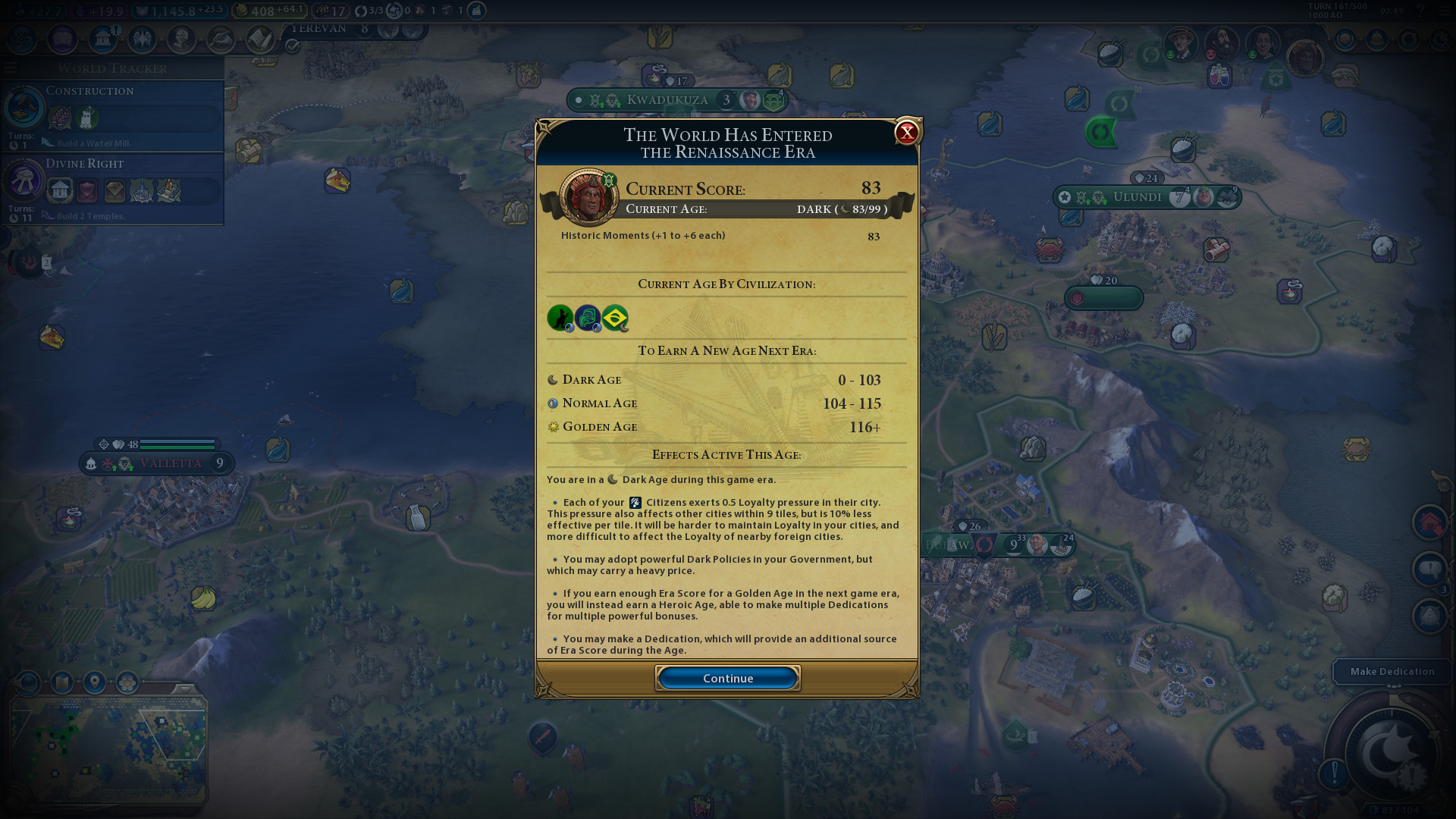 Failing to earn a golden age or even falling into a dark age isn’t all bad, however, as it gives you a chance to choose dedications (sort of objectives) that, if completed, add massively to your era score. Civilizations in dark ages, if they get enough points for a golden era, enter what is then a heroic age where they may get even more boons. It works as a good system of keeping games dynamic and gives civilizations who have fallen behind a chance to catch up. There are even civics that can be taken in dark ages that are more powerful than normal but have some sort of drawback, so it can be an interesting and fun challenge to guide your civ through its lowest moments.
Failing to earn a golden age or even falling into a dark age isn’t all bad, however, as it gives you a chance to choose dedications (sort of objectives) that, if completed, add massively to your era score. Civilizations in dark ages, if they get enough points for a golden era, enter what is then a heroic age where they may get even more boons. It works as a good system of keeping games dynamic and gives civilizations who have fallen behind a chance to catch up. There are even civics that can be taken in dark ages that are more powerful than normal but have some sort of drawback, so it can be an interesting and fun challenge to guide your civ through its lowest moments.
There are a few criticisms I have to make about the system. Chiefly, if you’re already way in the lead it’s too easy to keep getting more golden ages than it perhaps should be. In one game I had four or five golden ages in a row. I also found that sometimes it can be a little too tough to get inspirations needed to keep from falling into a dark age. This is especially true early in the game when things like discovering natural wonders can be down to luck and can make the difference between finishing in a normal age and a dark age. I’ve played at least five full games and a few partial matches but even then it’s hard to say if the system evens out in the long run.
The second of the bigger changes include the introduction of city loyalty. If a city is founded too far away to your own cities or too close to other civilization’s settlements, it may suffer from disloyalty. Too low and they rebel, becoming free entities that can then be conquered by others or may be integrated by those exerting enough cultural pressure on them. Governors, of which you have several types, can be appointed as well and they can grant different kinds of bonuses as well as increase city loyalty.I generally like how loyalty works though it still fails to keep the AI from expanding too close to other civs. It is, however, highly amusing to watch civilizations lose a city or two over the course of the game for their folly, especially if they’re in a dark age. Likewise a conquered city can go back to its original owner that way, which I think is an elegant way of solving the blobbing issue that sometimes arose from powerful warmongers. Governors work out to be a so-so addition. It's an interesting concept but they're not nearly flexible enough to deal with fast-changing circumstances like the existing civic cards system is. That means that you generally assign them and forget about them, only moving them when there's a serious problem with loyalty in another city. I hope they’ll be tweaked further as it's certainly something that could reinforce the dynamism of the game if made more interesting to interact with.
The last thing that deserves special mention is the introduction of emergencies. Whenever a truly global event happens, like a holy city being converted to another religion, or a nuclear weapon is used, the game declares an emergency. Civilizations can join in on that emergency which usually involves keeping one offending player from getting away with what he’s doing for several turns. There are bonuses for all involved and if the defending player wins, he also gets plenty out of it. It’s a fun little dynamic twist to the game that’s marred by the fact that the AI is a little too reluctant to join them in some cases. I’m not sure if it was bad luck on my part but it seemed that at most a single civilization would join in opposition, making resolving the the emergency a fraught prospect. They’re still fun moments to resolve but I believe it’s something that can be worked on and improved.
There are other changes in Rise and Fall but they’re more of the evolutionary kind, such as a reworking of the alliance system and new wonders and civilization. Don’t get me wrong, it’s not bad by any means. As a civ addict I love to play around with new districts, buildings, civs and wonders. They’re all generally pleasant additions and go a long way in giving the game more flavor and variety. I especially appreciate wonders that take advantage of questionable quality terrain such as tundra and snow tiles. New civilizations like the Mapuche and Scots are a delight to play and solid additions. But they’re all things that you expect in any expansion and they’re of a sufficient quality not to disappoint.
There are still some issues that are present in the base game that remain unaddressed. The most striking is how utterly inept the AI can be in many cases. While they’ve made the AI opponents sufficiently competent when it comes to building wonders or aiming for cultural victories, it still is rather rubbish when it comes to war and diplomacy. Being backstabbed in nearly every game would be forgivable if the AI were good at following through. Too often I’ve had a civ with good relations declare war, try to invade and then flounder. Worse still, they are gluttons for punishment and are eager to declare war again after the peace treaty expires. Even though they haven’t rebuilt their armies yet!
It’s hard to play as a pacifist or isolationist which, fair enough, is hard in the real world too. Still, it shouldn’t be such a struggle to maintain good relations in every game played. Sometimes you should be able to get away with not being at odds with other civs at least not to the degree that it leads to boring and easily-countered wars. The AI is competent enough at competing in religion, culture and science, so it wouldn’t hurt for them to shift their priorities there to win the game instead of spending so much time spamming me with denouncements and lopsided trade deals. I’d be more open to trading my luxury resources if you hadn’t just pillaged my districts during the last war, Trajan.
I find myself in the odd position to have to talk about a patch that isn’t out yet for Linux. Aspyr haven’t yet put out the March update for the game which does a lot to rebalance and deals with plenty of nasty bugs. The changes mostly sound good and it’s extremely frustrating not to get updates in a timely manner. Aspyr have been better at communication as of late but it still feels like OSX and Linux customers are being neglected. The amount of uncertainty isn’t very good when it comes to recommending the game to others as it can be weeks or months after Windows users get their updates and expansions that we finally get our version. It should also go without saying that over a year and some months since release it’s also unacceptable that crossplatform play with Windows users still isn’t available. Linux users can be very patient and understanding but communication from porters and developers is important in maintaining trust and driving sales.
Also be aware that Asypr does not officially support anything but Nvidia proprietary graphics. I played on Mesa with my AMD card without issue but if you do run into problems you’re pretty much on your own. Performance is also an area where the game could be better but as it's a turn-based game, it can get away with lower FPS.
With all that said, this is still an expansion that I’ll gladly recommend to fans of Civilization VI. It’s not earth-shattering stuff but it’s a clear step forward in improving the game. Even the parts that aren’t that great aren’t enough to sour the experience. There’s still work to be done with the AI but I think it’s enough of a challenge to keep players engaged and entertained for dozens, if not hundreds, of hours. At the same time I don’t expect that this is the kind of expansion that will get people skeptical of the game to change their minds either. But I think it’s certainly a solid expansion that will hopefully lead to more ambitious and sweeping expansions and patches in the future.
You can grab Civilization VI: Rise and Fall on Steam.
Failing to earn a golden age or even falling into a dark age isn’t all bad, however, as it gives you a chance to choose dedications (sort of objectives) that, if completed, add massively to your era score. Civilizations in dark ages, if they get enough points for a golden era, enter what is then a heroic age where they may get even more boons. It works as a good system of keeping games dynamic and gives civilizations who have fallen behind a chance to catch up.This sounds like the kind of handholding that I absolutely loathe.
If you play bad, you should be last and not get bonuses for some strange kind of rubber-banding to push you back into the game that you rightfully lost due to wrong decisions.
What kind of "lesson learned" is that if your bad play is rewarded in such a way?
I can only hope that in practice all this does is reduce snowballing a bit, as the games do tend to be over once one player gets ahead in score a lot.
And that fulfilling such dark age conditions is not a given.
Last edited by TheSHEEEP on 3 Apr 2018 at 11:21 am UTC
If you play bad, you should be last and not get bonuses for some strange kind of rubber-banding to push you back into the game that you rightfully lost due to wrong decisions.I don't know how you can reach that conclusion. I did add plenty of conditionals like "if" and the sentence that follows that paragraph you quoted mentions that it can be a fun challenge. If you play like rubbish you can't expect to do well. Losing cities to rebellion isn't exactly a reward :P
The game just gives you a fighting chance to pick yourself up.
I think comeback mechanics are quite important in any more or less competitive game. Otherwise, why even play if you're clearly losing half into the round?Exactly. You shouldn't.
If a game is lost, quit and try again in another match.
What point is there to artificially prolong the experience if there is no chance you could win anyway?
If the comeback mechanic is weak, it will keep you in the game somewhat, but change nothing about the outcome. That is pointless for any kind of competitive play.
I do see the point in cooperative play, though, or some casual matches.
If the comeback mechanic is so strong that a player that simply played worse is suddenly a significant challenger, then that is just absolutely unfair. And could be abused, too!
The better player should always win and a too strong rubber-banding can make that simple rule invalid.
Don't forget that it also improves the gameplay for the top players (if you multiplay). They can't just sit and skip turns but should always be ready for an unexpected challenge.If I was the better player, then my gameplay surely wouldn't be improved by knowing someone else is still competing just because the game handed out freebies.
Generally speaking, I mean. I know they are not exactly freebies in this case. I wouldn't mind that much in some casual matches or co-op. But if I was out for some actual skill-based competition, then any form of rubber-banding should at the very least be optional.
And it is Worth. Every. Penny.
Got it, played for 30 minutes or so,Haha, yeah.and realized that I would prefer playing Dominions 5
, which is far, far deeper. No game (and I've been playing solo since 2009) has the depth, the enormous variety of strategies, and the amazing (labeled, and a whole lot of people complain about the perfectly serviceable graphics) variety of units.
And it is Worth. Every. Penny.
No comparison there.
But an entirely different design philosophy (and target audience) ;)
I think the only element those two have in common is that they are turn-based.
Last edited by TheSHEEEP on 3 Apr 2018 at 1:45 pm UTC
I think comeback mechanics are quite important in any more or less competitive game. Otherwise, why even play if you're clearly losing half into the round?Exactly. You shouldn't.
If a game is lost, quit and try again in another match.
What point is there to artificially prolong the experience if there is no chance you could win anyway?
On the other hand, your approach leads to those kinds of games where an early advantage is unsurmountable, so one player gains the upper hand 10 minutes in and the other one just surrenders immediately. Everyone is entitled to their opinion and preferences. I, for one, don't care about games that keep ending at the start and no one gets to play the rest of the game ever, so I have to agree that comeback possibilities are an important part of a game.
Not really. Once you gain the upper hand, you also have to keep it. It is surprisingly easy to fall behind after a lead in a game like Civ. All you need to do is follow some good decisions with some bad ones. And if you are in the lead, the other players can and should start doing something about you - if they don't, it's all the more reason they deserve the loss.I think comeback mechanics are quite important in any more or less competitive game. Otherwise, why even play if you're clearly losing half into the round?Exactly. You shouldn't.
If a game is lost, quit and try again in another match.
What point is there to artificially prolong the experience if there is no chance you could win anyway?
On the other hand, your approach leads to those kinds of games where an early advantage is unsurmountable, so one player gains the upper hand 10 minutes in and the other one just surrenders immediately. Everyone is entitled to their opinion and preferences. I, for one, don't care about games that keep ending at the start and no one gets to play the rest of the game ever, so I have to agree that comeback possibilities are an important part of a game.
And this is still Civ we're talking about. A lead early game doesn't mean too much. A lead by the end of the mid-game is pretty much a win, yeah. But by that time you already played a few hours, so I'd not call that missing out "the rest of the game".
All that a weak comeback mechanic would do in such a situation is to mask the reality of who will win this game. And if all you want to do is not to know who's in the lead to prevent quitting, well, just hide the scoreboard.
While a strong comeback mechanic would possibly change who will win, which as I wrote before would mean that the worse player could end up being the winner, which is just fully unacceptable on many levels.
Of course, all of that assumes roughly the same skill level among players.
If you want to play with some friends, and all are on entirely different skill levels, then
A) you shouldn't play against each other in the first place
B) you should play co-op
C) you can do setups so that it is 1vs2 or the best player has some handicap, etc.
All of those are based on player choices, not the game trying to enforce some kind of bad racing game rubber-banding.
Last edited by TheSHEEEP on 5 Apr 2018 at 5:37 am UTC
Not really. Once you gain the upper hand, you also have to keep it. It is surprisingly easy to fall behind after a lead in a game like Civ. All you need to do is follow some good decisions with some bad ones. And if you are in the lead, the other players can and should start doing something about you - if they don't, it's all the more reason they deserve the loss.I think comeback mechanics are quite important in any more or less competitive game. Otherwise, why even play if you're clearly losing half into the round?Exactly. You shouldn't.
If a game is lost, quit and try again in another match.
What point is there to artificially prolong the experience if there is no chance you could win anyway?
On the other hand, your approach leads to those kinds of games where an early advantage is unsurmountable, so one player gains the upper hand 10 minutes in and the other one just surrenders immediately. Everyone is entitled to their opinion and preferences. I, for one, don't care about games that keep ending at the start and no one gets to play the rest of the game ever, so I have to agree that comeback possibilities are an important part of a game.
And this is still Civ we're talking about. A lead early game doesn't mean too much. A lead by the end of the mid-game is pretty much a win, yeah. But by that time you already played a few hours, so I'd not call that missing out "the rest of the game".
All that a weak comeback mechanic would do in such a situation is to mask the reality of who will win this game. And if all you want to do is not to know who's in the lead to prevent quitting, well, just hide the scoreboard.
While a strong comeback mechanic would possibly change who will win, which as I wrote before would mean that the worse player could end up being the winner, which is just fully unacceptable on many levels.
Of course, all of that assumes roughly the same skill level among players.
If you want to play with some friends, and all are on entirely different skill levels, then
A) you shouldn't play against each other in the first place
B) you should play co-op
C) you can do setups so that it is 1vs2 or the best player has some handicap, etc.
All of those are based on player choices, not the game trying to enforce some kind of bad racing game rubber-banding.
You're not wrong and I agree on many of your points. Yes, it is easy to fall behind from a lead - all you have to do is to do some bad decisions. The problem is, it's still the lead player there who decides the outcome of the match. All he has to do is to not do those mistakes and play reasonably well to snowball his lead into a victory. That might sound easier than it is in reality for most of us, but let's not forget one thing here. Serious competitive players will put in the time and effort to absolutely minimize the instances where they do a mistake or set themselves back a few or several turns. These players will NOT give their opponent the opening they need to get back in the game. The other player realizes this and so he's faced with two options. Let the game continue and hope for a miracle or concede and try again. Most people will go with the second option. The first option is for serious super saiyan level competitive players who have the experience and confidence to lure their opponent into a mistake. Reason for that is very simple; fighting from behind is usually very difficult. It is balancing on a very slippery slope, to use the game design term.
If we're talking about a FFA situation where multiple players are in the game but only one can be a victor then this dynamic of course gets shaken up. Incidentally, I am also of the opinion that such a FFA game cannot really be considered competitive in any fair way. FFA games are chaotic fun curbstomps, but not a good competitive environment. If you're playing FFA, gaining an early lead is quite realistically the worst thing you could do, unless it's a really, really major lead. Even in a FFA game though, I think you want comeback mechanics so that players that fall too far behind have a chance of catching up during the game, if they can survive. Why? Once again because such an approach doesn't rely on external factors, on the neighbors of the player who fell behind, making a mistake. Diplomacy won't help most of the time, in FFA, there's absolutely zero reason for anyone to play friendly and altruistic and help a player who's behind through unfavorable trade deals and whatnot. So, even the worst player in a game needs to have some avenues, some plays he can make, to be relevant or regain relevancy in the match, otherwise he's just cattle, waiting for someone to finally pick him apart. That doesn't make for interesting gameplay, so he'll just GG out of the game.
And yes, as you've pointed out, since this is still Civ we're talking about, let's not forget the fact that the game involves some significant RNG elements, so the fact that a player gains a lead or falls behind can entirely be the product of an (un)favorable starting position or (un)lucky initial scouting. Therefore I think it wise to recognize that shit sometimes hits the fan like this and offer the "rubber-banding". Otherwise, a game really has strong potential to end up devolving into the situation where the first mistake decides the whole match, which I think is bad regardless when in the game it happens except if it happens in the very late game.
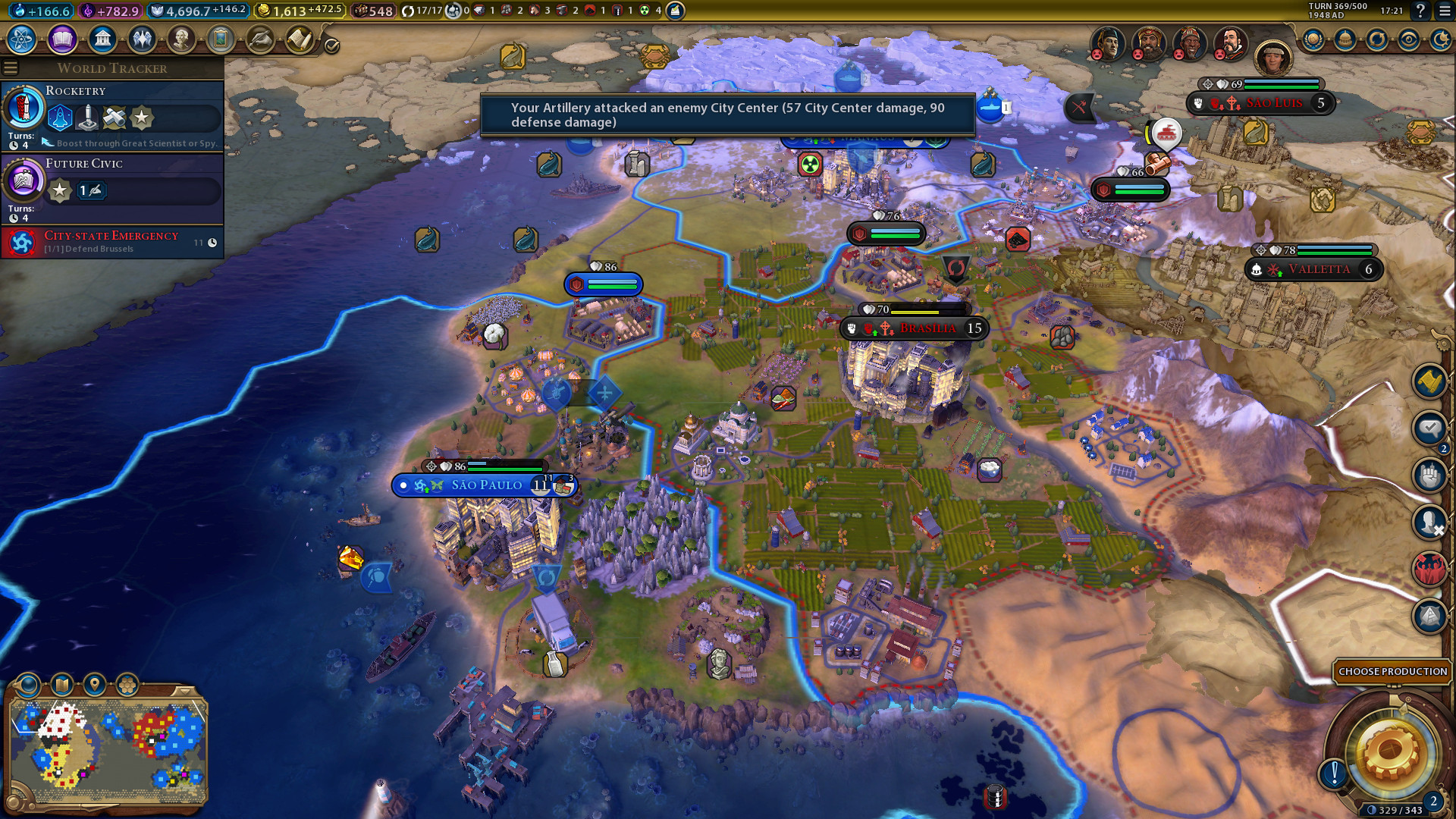
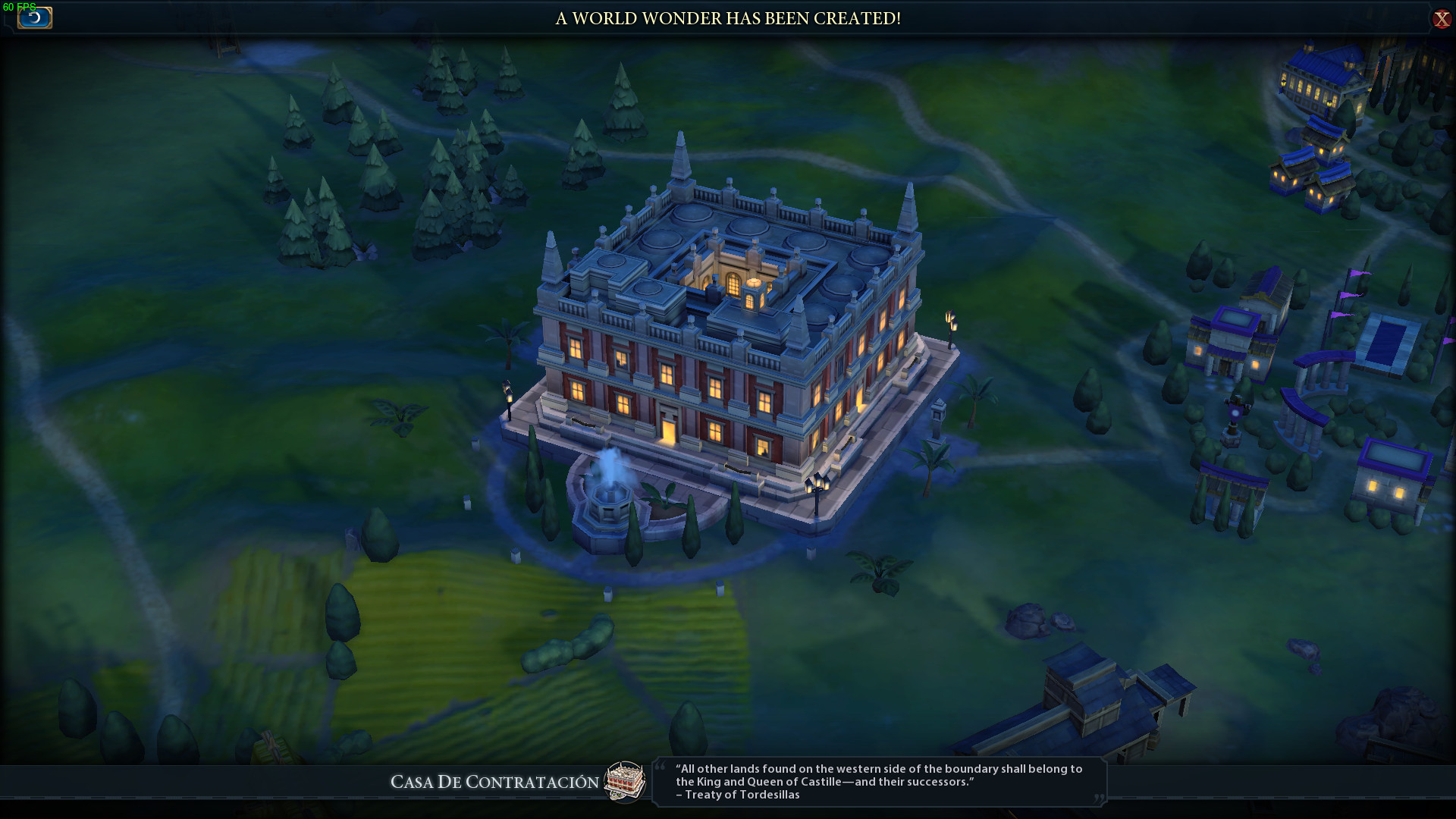
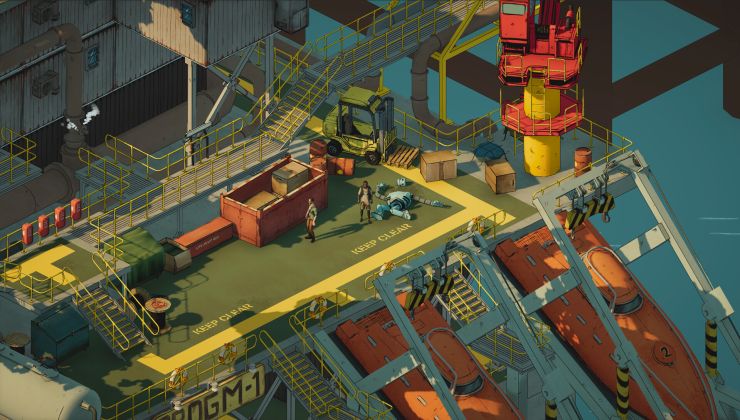


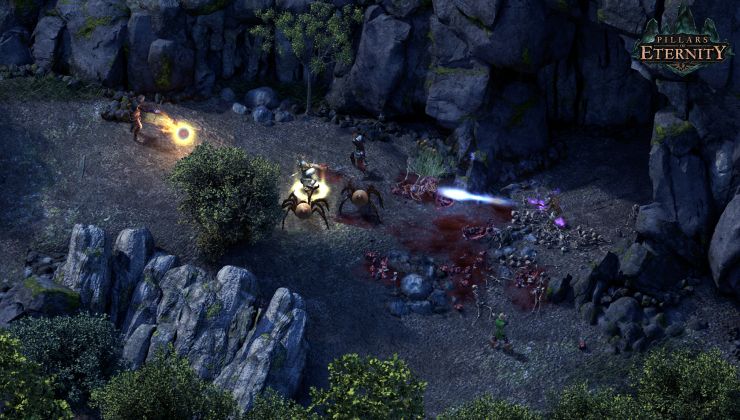





 How to set, change and reset your SteamOS / Steam Deck desktop sudo password
How to set, change and reset your SteamOS / Steam Deck desktop sudo password How to set up Decky Loader on Steam Deck / SteamOS for easy plugins
How to set up Decky Loader on Steam Deck / SteamOS for easy plugins
Oh and the name doesn't mean anything but coincidentally could be pronounced as "Buttery" which suits me just fine.
See more from me